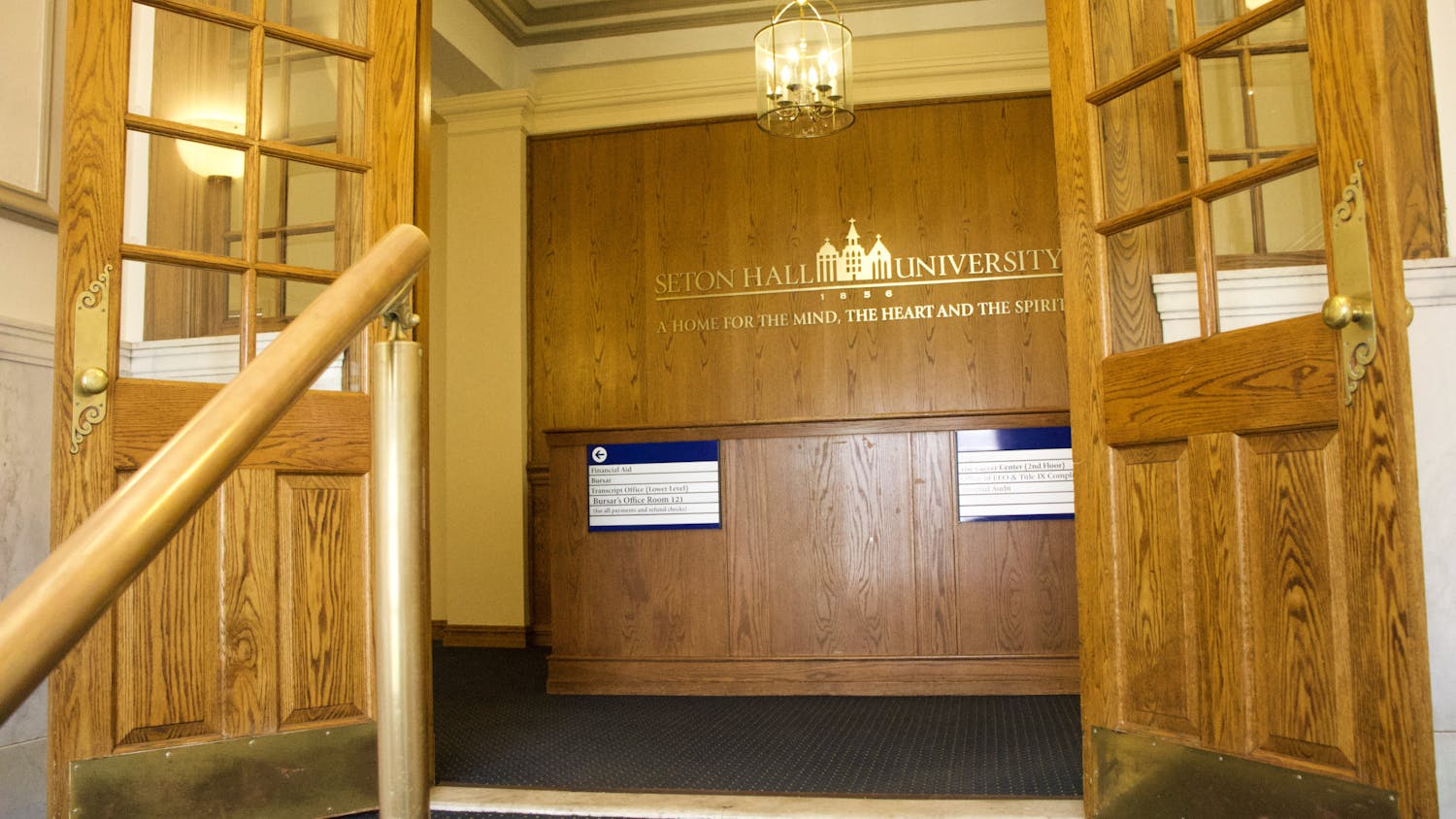While the "green" movement has grown in popularity among colleges and universities, Seton Hall remains behind in significant acknowledgment as a sustainable environmental school.
According to the College Sustainability Report Card on greenreportcard.org, Seton Hall was given a D for the year 2009 and has dropped to a D- for the upcoming year.
John Signorello, associate vice president of Facilities and Operations said the reason for the drop was not based on Seton Hall's lack in efforts.
"There was a change in leadership on the (sustainability) committee and the form was not submitted," Signorello said. "Seton Hall has made progress, especially over the past year."
Since July 2008, Signorello said the university has drafted a strategic proposal and recommendations for strategic planning, university stewardship, research, education and community engagement or strategic partnerships.
Despite these improvements, there has been some noticeable setbacks for the university.
For instance, although there are recycling bins around campus, many members of the community fail to follow the rules of where to throw their garbage. Signorello said, "when the campus community throws garbage into a recycle container, the entire container now gets treated as garbage." This has left janitors in the position of throwing away recycled items.
A contributing factor to recycled items becoming garbage has been the lack of all types of recycling bins in designated areas.
For example, not all residence hall floors give the options of recycling paper, plastic and cans. Signorello said, "Facilities and Operations is currently evaluating its recycle program which includes locations and standardized bins."
Another setback is the limited amount of solar panels on campus. Signorello said that Facilities Engineering has evaluated a number of proposals for solar power that could supplement the current electric usage.
"Due to limited open surface areas such as roofs without mechanical equipment on them or open space, these projects have not shown to be feasible," Signorello said. "We continue to dialogue with the companies who install these type projects."
While it is unclear whether or not these setbacks are the reason for Seton Hall's low report card grade for the year 2009, other local schools have a high record in grading.
Drew University improved their grade from a C+ to a B- while Rutgers University improved their grade from a C to a B- in just one year.
Unlike Seton Hall, some schools in New Jersey such as Drew University, Ramapo College and Rider University have joined the movement by signing President Obama's Climate Commitment, which addresses global warming and helps to neutralize greenhouse gas emissions.
"Seton Hall still has a lot of work to do in regards to improving our current state of sustainability. Other schools around the nation have already taken action," sophomore Katharine Kratzat, president of the Ecology Club, said.
However, Signorello said continuous improvement is still being made to the university's sustainability.
"We are not only recycling the typical cans, bottles and cardboard, we are looking for new areas such as the recycling of kitchen fry oil and food waste," he said.
A recent improvement has been the food waste recycle program which Gourmet Dinning Services began last year after they conducted an audit of how much food was being wasted daily.
Anthony Frungillo, vice president of operations for Gourmet Dinning Services, said the audit results from last year for wasted food collected from trays was around 600 pounds.
The total food wasted daily came to around 700 pounds. Frungillo said that this weight has increased since the audit last year.
The idea for the audit came from influence of other universities, according to Frungillo, and the Division of Volunteer Effort's Hunger Week last year, which brought awareness to how much food was being wasted.
"We're almost at a point that everything that comes from Gourmet Dining as far as garbage is either recycled or processed through the food processing," Frungillo said.
A recent report from the Food Composting Company said that in one week Seton Hall had 2,800 pounds of food composted. Frungillo said GDS also now takes their fried oil and reprocesses it for reuse into biodiesel fuel.
According to the Sustainability Report from the Division of Finance and Technology that was released in May 2009, departments such as housekeeping services and facilities engineering have a specific outline to help the environment.
For example, green-papered products and cleaning supplies are now used and Facilities Engineering brought the Energy Star's "Project Porchlight" to campus in March 2009 which made lighting more energy-efficient.
Kratzat said the purpose of the Ecology Club is to inform and educate students about environmental issues.The club also works with the university's Sustainability Committee which helps improve existing policies as well as create new ones.
"Seton Hall is trying to change its ways. This year, efforts to ‘go green' are more apparent than they have been in the past," Kratzat said. "Other schools have surpassed the attempts made by Seton Hall; for example, Ball State University is in the process of changing every building to run off geothermal energy. This does not mean that Seton Hall cannot catch up to these schools and we hope that becomes the case in the coming years."
Carolyn Maso can be reached at carolyn.maso@student.shu.edu.





